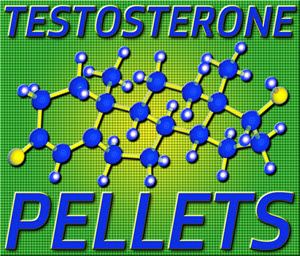Introduction to Monogenic Hair Loss
Monogenic hair loss, a condition resulting from mutations in a single gene, presents a unique challenge in the realm of dermatology and genetics. Unlike the more common androgenetic alopecia, which is influenced by multiple genetic and environmental factors, monogenic hair loss is directly attributable to a specific genetic anomaly. This article delves into the intricacies of monogenic hair loss, focusing on its impact on American males, and explores the latest scientific insights and potential therapeutic avenues.
Understanding the Genetic Basis
Monogenic hair loss is primarily associated with mutations in genes that are crucial for hair follicle development and maintenance. One of the most well-studied genes is the **HR** gene, which encodes for a nuclear receptor essential for hair cycling. Mutations in this gene can lead to a condition known as Marie Unna hereditary hypotrichosis, characterized by sparse hair from birth and progressive hair loss.
Another gene of interest is the **LIPH** gene, which is involved in the production of a protein necessary for hair shaft formation. Mutations in **LIPH** can result in autosomal recessive hypotrichosis, a condition that manifests as significant hair thinning and loss, particularly affecting the scalp and eyebrows.
Clinical Manifestations in American Males
In American males, monogenic hair loss can manifest differently depending on the specific gene mutation involved. For instance, mutations in the **HR** gene often lead to early onset of hair loss, sometimes noticeable in childhood or adolescence. This can have profound psychological effects, impacting self-esteem and social interactions.
On the other hand, mutations in the **LIPH** gene may not be as immediately apparent but can lead to progressive thinning over time. This type of hair loss can be particularly distressing as it may be initially misdiagnosed as androgenetic alopecia, delaying appropriate genetic counseling and treatment.
Diagnostic Approaches
Diagnosing monogenic hair loss requires a comprehensive approach, including a detailed family history, physical examination, and genetic testing. Dermatologists and geneticists often collaborate to identify the specific mutation responsible for the hair loss. Advanced techniques such as next-generation sequencing have revolutionized the field, allowing for rapid and accurate identification of genetic variants.
Current and Future Therapeutic Strategies
Currently, there are no specific treatments for monogenic hair loss, as the underlying genetic mutations are not easily amenable to pharmacological intervention. However, symptomatic treatments such as topical minoxidil or oral finasteride may be used to manage hair loss, although their efficacy can vary widely among individuals.
The future of treatment lies in gene therapy and precision medicine. Researchers are exploring the potential of gene editing technologies, such as CRISPR/Cas9, to correct the specific mutations responsible for monogenic hair loss. While these approaches are still in the experimental stages, they hold promise for providing targeted and effective treatments.
Psychological and Social Considerations
The psychological impact of monogenic hair loss should not be underestimated. American males affected by this condition may experience anxiety, depression, and social withdrawal. Support from mental health professionals, peer support groups, and counseling can be invaluable in helping individuals cope with the emotional toll of hair loss.
Conclusion
Monogenic hair loss represents a fascinating yet challenging area of medical science. As our understanding of the genetic underpinnings of this condition grows, so too does the potential for innovative treatments. For American males affected by monogenic hair loss, the journey towards effective management and potential cure is paved with both scientific discovery and compassionate care.
Contact Us Today For A Free Consultation

- Decoding Follicle Fallout: An Exploration of Hair Loss as a Significant Medical Concern [Last Updated On: March 2nd, 2025] [Originally Added On: March 2nd, 2025]
- Exploring the Link Between Thyroid Disorders and Hair Loss: Mechanisms, Diagnosis, and Treatment Options [Last Updated On: March 3rd, 2025] [Originally Added On: March 3rd, 2025]
- Exploring Surgical Solutions for Male Hair Loss: Techniques and Benefits [Last Updated On: March 4th, 2025] [Originally Added On: March 4th, 2025]
- Comprehensive Guide to Male Hair Loss: Causes, Treatments, and Psychological Effects [Last Updated On: March 5th, 2025] [Originally Added On: March 5th, 2025]
- Understanding Pediatric Hair Loss: Causes, Impact, and Management Strategies [Last Updated On: March 6th, 2025] [Originally Added On: March 6th, 2025]
- Exploring OTC Hair Loss Treatments for Men: Minoxidil, Herbal Supplements, and Efficacy Insights [Last Updated On: March 7th, 2025] [Originally Added On: March 7th, 2025]
- Holistic Approaches for Managing Hair Loss in American Men: Natural Solutions Explored [Last Updated On: March 8th, 2025] [Originally Added On: March 8th, 2025]
- Unveiling the Silent Culprit: The Connection Between Scalp Infections and Male Hair Loss in America [Last Updated On: March 9th, 2025] [Originally Added On: March 9th, 2025]
- Genetics and Hormones: Unraveling Male Pattern Baldness for Effective Treatment and Prevention [Last Updated On: March 9th, 2025] [Originally Added On: March 9th, 2025]
- Exploring Medical Wigs: A Vital Solution for Hair Loss in American Males [Last Updated On: March 10th, 2025] [Originally Added On: March 10th, 2025]
- Unraveling the Link Between Stress and Hair Loss in American Males: A Comprehensive Medical Insight [Last Updated On: March 12th, 2025] [Originally Added On: March 12th, 2025]
- Hormonal Influences on Male Hair Loss: Genetics, Androgens, and Treatment Strategies [Last Updated On: March 13th, 2025] [Originally Added On: March 13th, 2025]
- Unveiling the Truth: A Comprehensive Guide to Hair Loss in American Males [Last Updated On: March 15th, 2025] [Originally Added On: March 15th, 2025]
- Chemotherapy-Induced Hair Loss in American Males: Understanding, Coping, and Recovery Strategies [Last Updated On: March 16th, 2025] [Originally Added On: March 16th, 2025]
- Allergies and Hair Loss in American Males: Understanding the Indirect Connection [Last Updated On: March 17th, 2025] [Originally Added On: March 17th, 2025]
- Understanding Hair Loss in American Men: Causes, Treatments, and Future Hope [Last Updated On: March 17th, 2025] [Originally Added On: March 17th, 2025]
- Hair Loss in American Men: Psychological Impacts and Coping Strategies [Last Updated On: March 18th, 2025] [Originally Added On: March 18th, 2025]
- Topical Treatments for Hair Loss: Minoxidil, Finasteride, and Emerging Therapies [Last Updated On: March 19th, 2025] [Originally Added On: March 19th, 2025]
- Alopecia Universalis: Causes, Symptoms, and Treatment Options for American Males [Last Updated On: March 19th, 2025] [Originally Added On: March 19th, 2025]
- 14 FDA-Approved Medications and Therapies for Treating Hair Loss in American Males [Last Updated On: March 20th, 2025] [Originally Added On: March 20th, 2025]
- Understanding Hair Loss: Genetics, Hormones, Age, and Management Strategies for Men [Last Updated On: March 20th, 2025] [Originally Added On: March 20th, 2025]
- Diabetes and Hair Loss in American Males: Causes, Types, and Management Strategies [Last Updated On: March 20th, 2025] [Originally Added On: March 20th, 2025]
- Understanding and Treating Hair Loss in American Men: Causes and Solutions [Last Updated On: March 21st, 2025] [Originally Added On: March 21st, 2025]
- Male Hair Loss: Understanding Causes, Impacts, and Management Strategies [Last Updated On: March 21st, 2025] [Originally Added On: March 21st, 2025]
- Telogen Effluvium in American Males: Causes, Symptoms, and Management Strategies [Last Updated On: March 21st, 2025] [Originally Added On: March 21st, 2025]
- Drug-Induced Hair Loss in American Males: Causes, Medications, and Management Strategies [Last Updated On: March 21st, 2025] [Originally Added On: March 21st, 2025]
- Antidepressants and Hair Loss in American Males: Mechanisms, Management, and Support [Last Updated On: March 22nd, 2025] [Originally Added On: March 22nd, 2025]
- Innovative Hair Loss Solutions for American Men: Technology, Biology, and Lifestyle [Last Updated On: March 22nd, 2025] [Originally Added On: March 22nd, 2025]
- Hair Loss in American Males Linked to Increased Heart Disease Risk: Insights and Management [Last Updated On: March 22nd, 2025] [Originally Added On: March 22nd, 2025]
- Hair Loss in American Males: Causes, Surgical Options, and Future Treatments [Last Updated On: March 23rd, 2025] [Originally Added On: March 23rd, 2025]
- Hair Loss in Young Males: Causes, Impacts, and Treatment Options [Last Updated On: March 23rd, 2025] [Originally Added On: March 23rd, 2025]
- Hair Cloning: A Revolutionary Approach to Permanent Hair Loss Solutions [Last Updated On: March 23rd, 2025] [Originally Added On: March 23rd, 2025]
- LLLT: A Non-Invasive Solution for Male Pattern Baldness in American Men [Last Updated On: March 23rd, 2025] [Originally Added On: March 23rd, 2025]
- Hair Loss in American Males Linked to PCOS: Hormonal Imbalances Explored [Last Updated On: March 24th, 2025] [Originally Added On: March 24th, 2025]
- Autoimmune Disorders and Hair Loss in American Males: Causes, Impacts, and Treatments [Last Updated On: March 24th, 2025] [Originally Added On: March 24th, 2025]
- Steroids and Hair Loss: Understanding Risks and Mitigation Strategies for American Men [Last Updated On: March 24th, 2025] [Originally Added On: March 24th, 2025]
- Revolutionizing Hair Loss Treatment: Stem Cells, Gene Therapy, and AI Innovations [Last Updated On: March 24th, 2025] [Originally Added On: March 24th, 2025]
- Medical Hair Loss in Men: Causes, Effects, and Management Strategies [Last Updated On: March 24th, 2025] [Originally Added On: March 24th, 2025]
- Post-COVID Hair Loss in American Males: Causes, Impacts, and Management Strategies [Last Updated On: March 24th, 2025] [Originally Added On: March 24th, 2025]
- Hair Follicle Miniaturization: Causes, Signs, and Treatments for American Males [Last Updated On: March 25th, 2025] [Originally Added On: March 25th, 2025]
- AI Revolutionizes Male Pattern Baldness Treatment and Diagnosis [Last Updated On: March 25th, 2025] [Originally Added On: March 25th, 2025]
- Hair Extensions and Permanent Hair Loss: Risks and Safe Practices for American Males [Last Updated On: March 25th, 2025] [Originally Added On: March 25th, 2025]
- Understanding and Addressing Receding Hairlines in American Men: Causes and Solutions [Last Updated On: March 25th, 2025] [Originally Added On: March 25th, 2025]
- Male Pattern Baldness: Causes, Treatments, and Future Hope [Last Updated On: March 25th, 2025] [Originally Added On: March 25th, 2025]
- Hair Loss Reversed: Success Stories and Innovative Treatments for American Men [Last Updated On: March 25th, 2025] [Originally Added On: March 25th, 2025]
- Vitamin Deficiencies and Hair Loss in American Males: Causes, Prevention, and Treatment [Last Updated On: March 25th, 2025] [Originally Added On: March 25th, 2025]
- Understanding Hair Loss in Men: Causes, Diagnosis, and Advanced Technologies [Last Updated On: March 26th, 2025] [Originally Added On: March 26th, 2025]
- Shock Loss After Hair Transplants: Causes, Timeline, and Management for American Males [Last Updated On: March 26th, 2025] [Originally Added On: March 26th, 2025]
- Thyroid Disorders and Hair Loss in American Males: Causes, Diagnosis, and Treatment [Last Updated On: March 26th, 2025] [Originally Added On: March 26th, 2025]
- Androgenetic Alopecia: Advances in Diagnosis, Treatment, and Psychological Support for American Men [Last Updated On: March 26th, 2025] [Originally Added On: March 26th, 2025]
- Hair Dyes and Hair Loss: Risks, Studies, and Safety Tips for American Men [Last Updated On: March 26th, 2025] [Originally Added On: March 26th, 2025]
- Aromatherapy for Hair Loss in American Males: Benefits and Practical Applications [Last Updated On: March 26th, 2025] [Originally Added On: March 26th, 2025]
- Chemotherapy-Induced Hair Loss in American Males: Causes, Strategies, and Future Hope [Last Updated On: March 26th, 2025] [Originally Added On: March 26th, 2025]
- Anabolic Steroids and Hair Loss: Mechanisms, Prevalence, and Management in American Males [Last Updated On: March 26th, 2025] [Originally Added On: March 26th, 2025]
- Managing Hair Loss in American Males: Causes, Diagnosis, and Treatment Strategies [Last Updated On: March 26th, 2025] [Originally Added On: March 26th, 2025]
- Immune System Disorders and Hair Loss in American Males: Causes, Mechanisms, and Management [Last Updated On: March 27th, 2025] [Originally Added On: March 27th, 2025]
- PRP Therapy: A Promising Solution for Hair Loss in American Men [Last Updated On: March 27th, 2025] [Originally Added On: March 27th, 2025]
- Scalp Psoriasis and Hair Loss in American Males: Understanding and Managing the Impact [Last Updated On: March 27th, 2025] [Originally Added On: March 27th, 2025]
- Anemia and Hair Loss in American Men: Causes, Diagnosis, and Management Strategies [Last Updated On: March 28th, 2025] [Originally Added On: March 28th, 2025]
- Postpartum Hair Loss in American Males: Causes, Symptoms, and Management Strategies [Last Updated On: March 28th, 2025] [Originally Added On: March 28th, 2025]
- Hair Loss in American Men: Societal Views vs. Medical Facts and Treatments [Last Updated On: March 28th, 2025] [Originally Added On: March 28th, 2025]
- High Blood Pressure and Hair Loss: Managing Dual Health Concerns in American Males [Last Updated On: March 30th, 2025] [Originally Added On: March 30th, 2025]
- Trichotillomania in American Males: Challenges, Symptoms, and Treatment Strategies [Last Updated On: March 30th, 2025] [Originally Added On: March 30th, 2025]
Word Count: 563





















